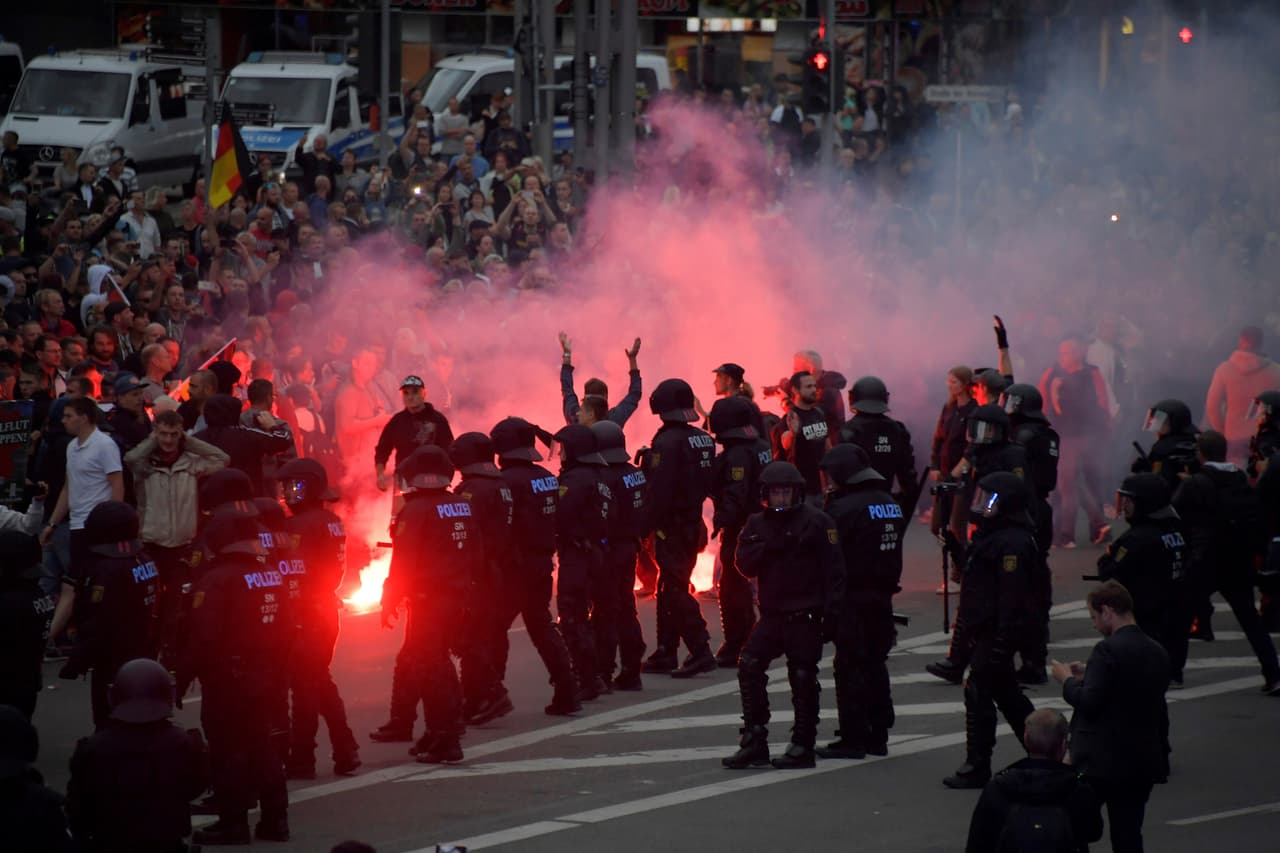
Chemnitz: How alternative German "news" sites are stoking anti-immigrant anger
As tensions rose in the east German city of Chemnitz last week following a fatal stabbing allegedly involving immigrants, the local authorities put out a plaintive request.
“Please don’t get involved in speculation!” tweeted the Saxony police on August 26. “Contrary to reports circulating in some media, there is no evidence from the current investigation into the fatal incident that it was preceded by harassment.”
Chemnitz resident Daniel Hillig had been stabbed to death in the early hours of that morning, and an Iraqi and a Syrian man were later confirmed as suspects in the case. A rumour that Hillig had been killed trying to defend a woman from sexual assault surfaced in local news sites in the hours following the attack, but in the absence of evidence, the national press mostly ignored it (the tabloid Bild mentioned the allegation but then updated their copy to reflect the police statement).
As the past week has highlighted however, the mainstream media no longer have a monopoly on what news Germans consume. A cluster of right-wing "alternative news" sites first highlighted by the Bureau last year continued to spread the rumour of sexual assault even after the Saxony police had said there was no evidence for it. On August 28 the far-right mobilised almost overnight to stage an anti-immigrant demonstration attended by thousands of people.
“Misinformation was an accelerator”, says Jonas Kaiser, an expert on online mobilisation at Harvard University’s Berkman Klein Center for Internet & Society. “You had ingredients there already, but the misinformation on top makes mobilising easier, makes the target easier.”
Any mention of sexual assault can act as a dog whistle to the far right in Germany, which is preoccupied by the idea that 2015's historic influx of refugees has put German women in danger.
Multiple demonstrations since the stabbing have seen reports of immigrants being chased down in the street and some protesters doing the Hitler salute. The mayor of Chemnitz described the events as a test of Germany’s postwar democracy.
The right-wing sites identified by the Bureau, some of which are Russia-linked, do not have anything like the reach of the mainstream media. But collectively they represent a mutually reinforcing alternative viewpoint in which Germany is at breaking point (in spite of a good economy and an overall reduction in violent crime) and the authorities are colluding with the mainstream media to pull the wool over the public’s eyes.
Compact, the online version of a right-wing magazine, reported as straight fact on August 27: “When brave men in Chemnitz tried to protect women from attacks…they were stabbed.”
In a story published on August 26 then updated the next day, the Russia-hosted German language site Anonymous led their coverage with the claim that “the three victims of the imported Asylumterror (sic) wanted to protect a woman who was being harassed by foreigners.” It made no mention of the police denial.
 Headline reads: "When refugees in Chemnitz 'celebrate': one German dead, two seriously injured"
Screenshot of Anonymous News
Headline reads: "When refugees in Chemnitz 'celebrate': one German dead, two seriously injured"
Screenshot of Anonymous News
PI-News (Politically Incorrect), one of the most influential of the constellation of sites, did not buy the rumour wholeheartedly, but continued to demand an answer to the question “Were there harassments or attacks on women before the incident?”, even after the Saxony police’s clarification.
The German language version of the Russian site RT reproduced the rumours in two of its stories on August 27, which also included the police’s statement from the previous day.
A site called Philosophia Perennis meanwhile complained at the idea that they shouldn’t speculate about sexual assault, asking: “Why not? So something else can be covered up?”
Kaiser argues that though much of the misinformation about the Chemnitz attack was driven by individual social media accounts and right wing political networks, these alternative news site make the rumours look more credible. “(They) serve the purpose of news mimicry,” says Kaiser. “They legitimise rumour.”




